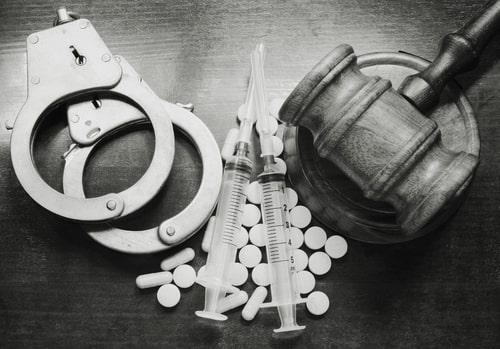How Do Prosecutors Prove Intent to Distribute in Texas?
 Getting arrested with a stash of drugs and paraphernalia is obviously a problem unto itself. But what happens when police and prosecutors announce they have the evidence to charge you with drug distribution—or, if they did not catch you in the act of distributing drugs, with the intent to distribute them? After all, the word “intent” implies something along the lines of being able to read someone’s mind; how can prosecutors know what someone’s intent was without actually seeing them do the crime of which they are committed?
Getting arrested with a stash of drugs and paraphernalia is obviously a problem unto itself. But what happens when police and prosecutors announce they have the evidence to charge you with drug distribution—or, if they did not catch you in the act of distributing drugs, with the intent to distribute them? After all, the word “intent” implies something along the lines of being able to read someone’s mind; how can prosecutors know what someone’s intent was without actually seeing them do the crime of which they are committed?
It may seem counterintuitive, but intent is a very important part of prosecuting many crimes in Texas, and selling drugs is no exception. Read on to learn about how police gather evidence and prosecutors present that evidence to convince a judge and jury that you were planning to sell drugs and then contact a Texas criminal defense attorney right away.
Possession with Intent to Distribute
The Texas Controlled Substances Act says it is illegal to deliver, possess, or manufacture drugs with the intent to distribute. The exact punishment for a conviction will depend on the drug in question, how much of it someone had, and other extenuating circumstances (such as whether the person is a minor or has a criminal history already).
Prosecutors can prove someone’s intent to distribute in several ways. These include:
- Direct evidence - Direct evidence is clear proof that someone sold, or was planning to sell, drugs. This includes a police officer or undercover agent actually seeing someone sell drugs, as well as having a statement from the person, whether in a confession, over text message, etc,. that he planned to sell drugs.
- Circumstantial evidence - Proving intent to distribute usually rests on circumstantial evidence. This includes someone being arrested while in possession of a large amount of drugs, drug packaging equipment, being in an area known for drug dealing, or being arrested with weapons or large amounts of cash.
Although it may seem unfair, prosecutors can argue that all the evidence considered together shows that someone intended to distribute drugs even without direct evidence. When creating a defense, someone charged with intent to distribute could argue that the search was illegal, that the drugs were not theirs, that the drugs were for personal use, or that they did not know about the drugs. The most helpful defense will depend on the particulars of the case, which is where a criminal defense attorney comes in.
Call a Plano, TX Criminal Defense Lawyer
Texas authorities take distributing drugs very seriously, and prosecutors are motivated to secure convictions. If you are facing charges or an investigation for distributing drugs of any kind, speak with a Collin County, TX criminal defense attorney with The Crowder Law Firm, P.C. right away. We pride ourselves on offering aggressive representation to each of our clients and work hard to protect their constitutional rights. Call us today at 214-544-0061.
Source:
https://statutes.capitol.texas.gov/Docs/HS/htm/HS.481.htm
















